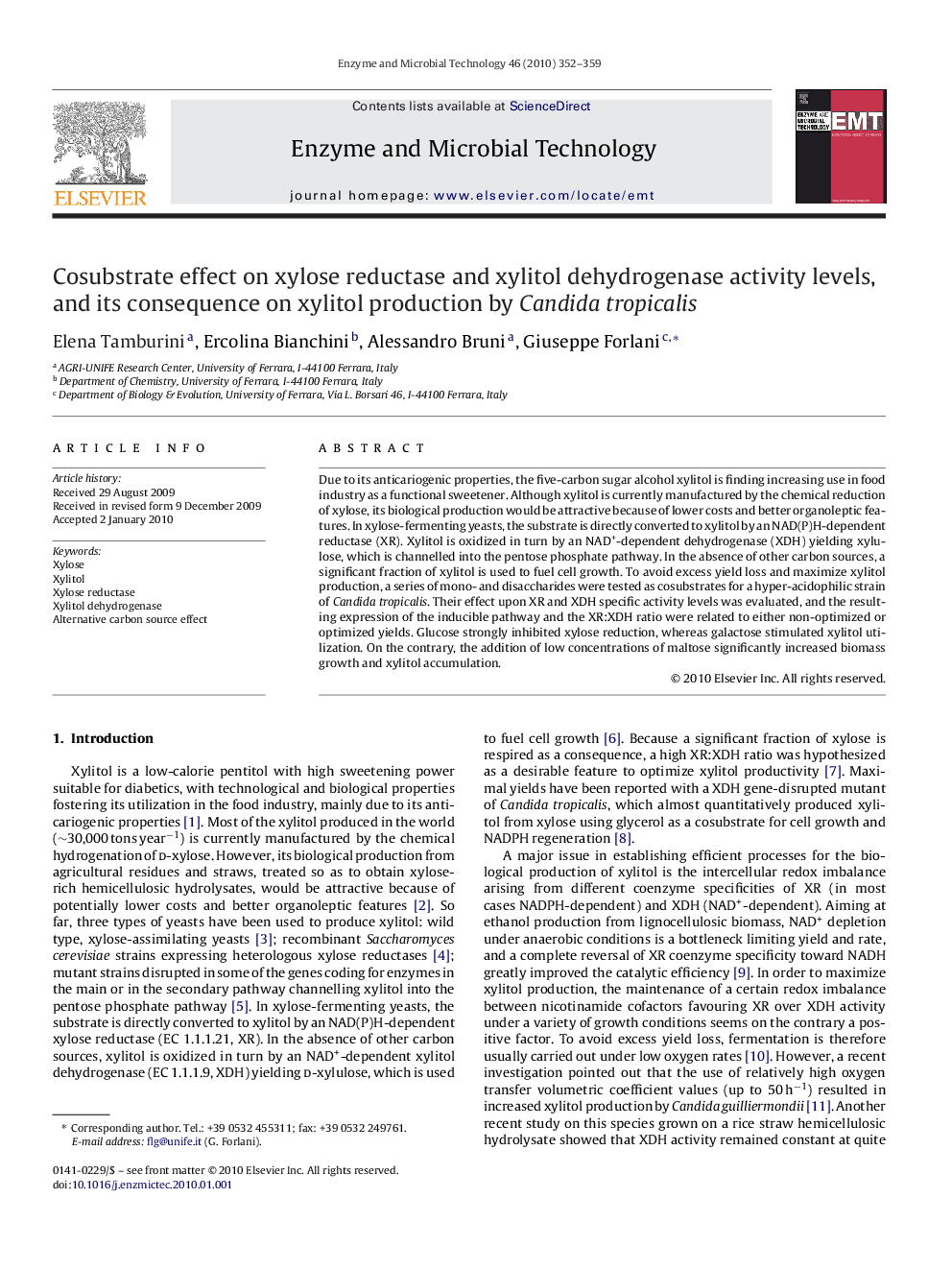| کد مقاله | کد نشریه | سال انتشار | مقاله انگلیسی | نسخه تمام متن |
|---|---|---|---|---|
| 17700 | 42690 | 2010 | 8 صفحه PDF | دانلود رایگان |

Due to its anticariogenic properties, the five-carbon sugar alcohol xylitol is finding increasing use in food industry as a functional sweetener. Although xylitol is currently manufactured by the chemical reduction of xylose, its biological production would be attractive because of lower costs and better organoleptic features. In xylose-fermenting yeasts, the substrate is directly converted to xylitol by an NAD(P)H-dependent reductase (XR). Xylitol is oxidized in turn by an NAD+-dependent dehydrogenase (XDH) yielding xylulose, which is channelled into the pentose phosphate pathway. In the absence of other carbon sources, a significant fraction of xylitol is used to fuel cell growth. To avoid excess yield loss and maximize xylitol production, a series of mono- and disaccharides were tested as cosubstrates for a hyper-acidophilic strain of Candida tropicalis. Their effect upon XR and XDH specific activity levels was evaluated, and the resulting expression of the inducible pathway and the XR:XDH ratio were related to either non-optimized or optimized yields. Glucose strongly inhibited xylose reduction, whereas galactose stimulated xylitol utilization. On the contrary, the addition of low concentrations of maltose significantly increased biomass growth and xylitol accumulation.
Journal: Enzyme and Microbial Technology - Volume 46, Issue 5, 5 April 2010, Pages 352–359